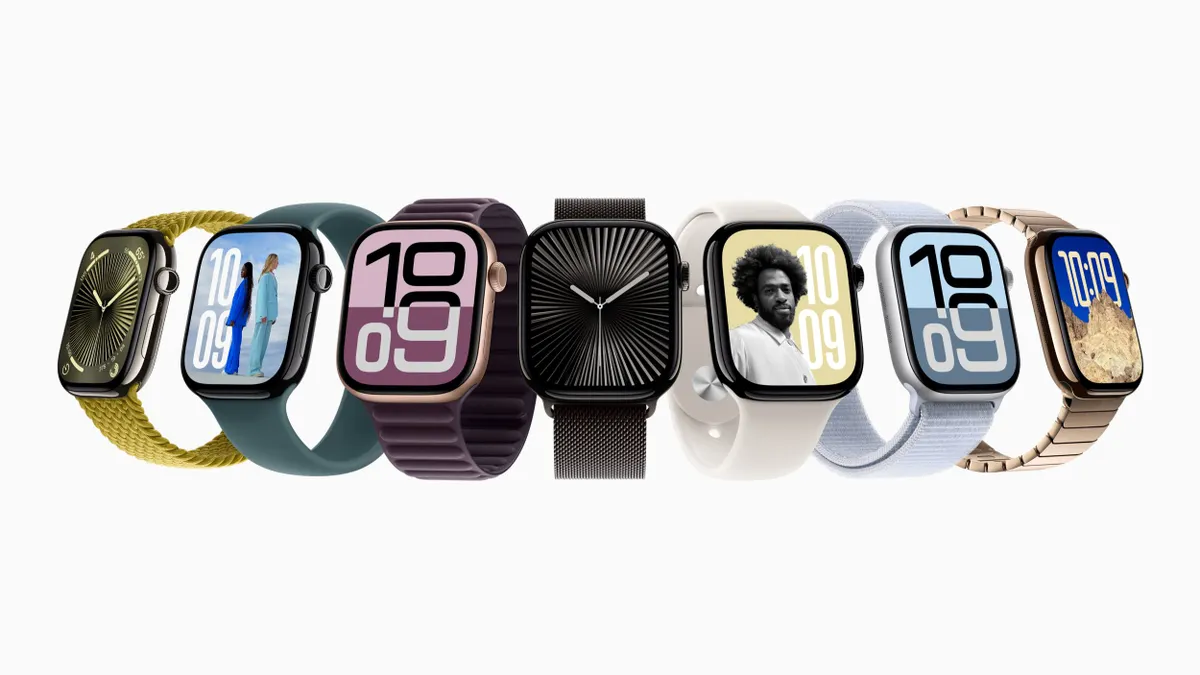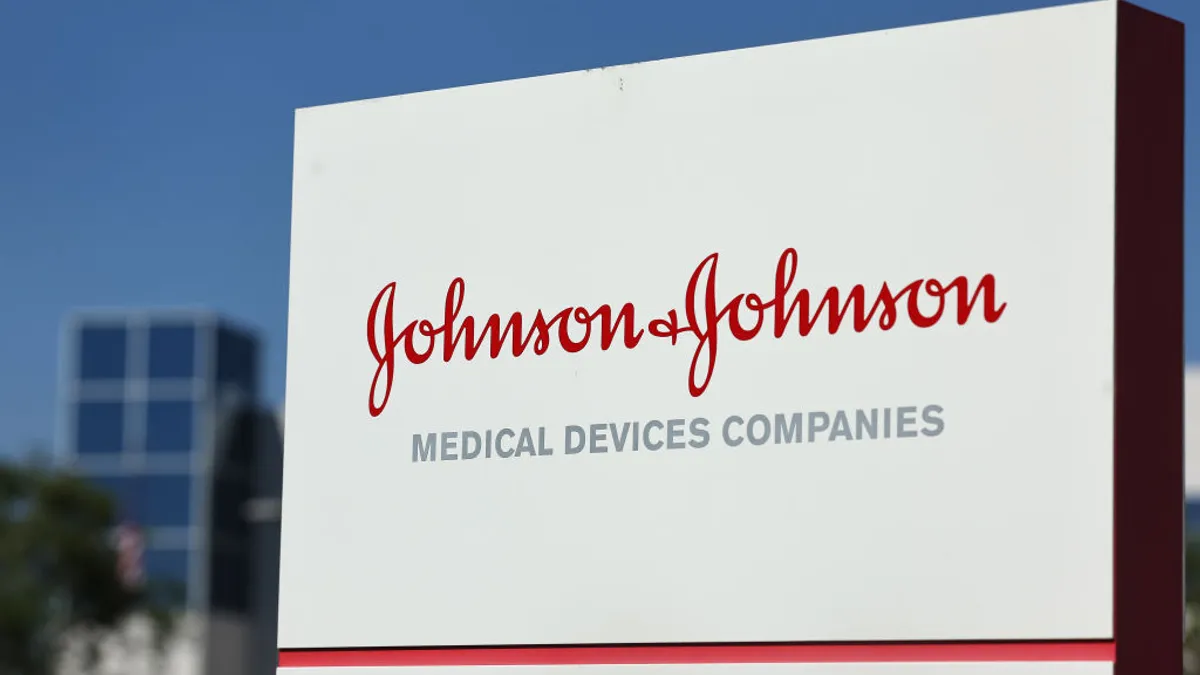As recently as a year-and-a-half ago, the chief executive of diabetes tech nonprofit Tidepool wouldn't have predicted a collaboration with Medtronic, he told MedTech Dive in an interview.
During the diabetes research community's biggest gathering of the year, the largest pure medtech in the world announced it would support Tidepool's effort to turn the existing, open source "do-it-yourself" loop algorithm — used by some people with diabetes in an attempt to automate their insulin delivery — into a fully interoperable, FDA-regulated, App Store offering.
"We are all a bit in (good) shock that this is happening," Tidepool CEO Howard Look tweeted following announcement of the partnership with the medtech giant past June.
The Tidepool Loop app is being designed to run an algorithm every five minutes and adjust basal rate (or dosing of short-acting insulin) for the next half-hour based on an individual's blood glucose readings. Tidepool expects a 1,000-person observational study of the technology, led by the JAEB Center for Health Research, will be completed next summer, although Tidepool said it will not require full data from the study prior to a submission to FDA.
If the idea becomes reality, people managing diabetes would be able to have virtually any combination of compatible CGM and pump communicate when connected by the algorithm. The extent of Tidepool Loop's impact hinges largely on how many companies choose to build interoperable devices and partner with Tidepool.
FDA-sanctioned interoperability takes shape
Founded in 2013, Tidepool already offers a free-to-use software platform that can consolidate a person's continuous glucose monitor, blood glucose meter and insulin pump data, aiming to offer better insights to patients and their caregivers.
But only last October did the organization announce plans to seek FDA's greenlight for a version of the Loop app. Type 1 diabetes research nonprofit JDRF and the Helmsley Charitable Trust, which have financially backed Tidepool since its inception, put up an additional $6 million to help bring a regulated version of Loop to market.
For years, researchers have tried to perfect an artificial pancreas, also known as a hybrid closed loop or automated insulin delivery system; at the same time, some people with diabetes have built their own versions using an open source algorithm engineered to work with out-of-warranty Medtronic insulin pumps.
In 2016, Medtronic was the first to win FDA approval for such a system. In order to work with Tidepool Loop and other companies' CGMs, though, Medtronic must develop an interoperable pump.
If Medtronic makes the next version of its MiniMed pump interoperable and sees the partnership through to fruition, it could represent unprecedented openness to patient choice by the medtech giant. Unlike announced Tidepool Loop partners Insulet and Dexcom, Medtronic sells both pumps and CGMs. That means in connecting with Tidepool's algorithm, Medtronic would free its pump users (which number approximately 180,000 on the most recent version alone) to integrate their device with other brands' CGMs to a degree not previously possible outside of an entirely Medtronic system.
Part of the reason it has taken so long for any group to get such an algorithm authorized FDA is because other key interoperable pieces of an artificial pancreas system only recently became available. Although the diabetes tech market is saturated with many CGM and pump offerings, most aren't designed to talk to each other.
That began to change with FDA's March 2018 authorization of Dexcom's G6 as the inaugural iCGM, or integrated continuous glucose monitoring system. Then came Tandem's De Novo-winning interoperable insulin pump in February 2019, which established FDA's alternate controller enabled, or ACE, pump classification.
Projects like JDRF's Open Protocol initiative, launched in late 2017 in part to support development of predictable regulatory paths for open-protocol systems, have helped ramp up interest in interoperability efforts, according to Look.
"It really helped industry realize that the FDA was serious about wanting to pursue this interoperable components approach," he said.
Taking a closed loop system through FDA's regulatory process is key, he said, because some people simply want the confidence their management system has gone through the rigor of a regulatory review. Others haven't felt comfortable using the out-of-warranty, specially engineered pumps long necessary for supporting the closed loop algorithm.
If Tidepool Loop gets FDA's go-ahead, those seeking a hybrid closed loop system can turn to Tidepool for help or to raise concerns about malfunctions, Look said.
That kind of accountability is important, given the stakes of improper insulin dosing. FDA issued a safety communication in May cautioning against use of unapproved systems to manage blood sugar, citing an adverse event report in which insulin overdose required medical intervention.
"While the community has done an amazing job of providing support to the do it yourselfers, there's no single entity that you can go to that has stepped up and said … 'we will be the single point of accountability and responsibility for this,'" Look told MedTech Dive.
"I think most people feel like if there were a commercial approach that delivered as good therapy options, that they would be happy to use the commercial approach, but unfortunately, that just hasn't existed," he added.
Although Tidepool Loop is unique in its nonprofit-backed mission to allow for mixing and matching of as many different CGMs and pumps as possible, users may soon have other options, as companies like Tandem and Insulet work to commercialize their own closed loop systems.
For example, Tandem expects to roll out its Control-IQ algorithm in the fourth quarter, pending FDA review. The algorithm will run on its existing t:slim X2 pump, compatible with Dexcom's G6 iCGM. Similarly, Insulet's forthcoming Omnipod Horizon automated insulin delivery system, also compatible with the G6 product, is on track to begin a pivotal trial in the fourth quarter and is set up for market launch in the second half of 2020. Individuals who prefer a Tandem-Dexcom or Insulet-Dexcom combination system won't necessarily need Tidepool Loop to achieve a high-quality closed loop effect.
Regulatory lessons
Look had no experience working with FDA prior to 2013. "I do consider it an advantage that I knew nothing about the way the regulatory process works," the former Pixar, TiVo, and most recently, Amazon, software executive said.
While Tidepool has interacted with FDA since its beginning, Look said, his level of engagement changed dramatically in 2017 when the organization was tapped to become part of Software Pre-Certification Program pilot.
The program is aimed at pre-vetting manufacturers of software-based medical devices. In other words, the agency is moving toward managing software iteration on a company-by-company, rather than product-by-product, basis.
"I remember talking to [FDA's Director for Digital Health Bakul Patel] and talking to other folks at the FDA and thinking to myself, 'Wow, these guidance documents really don't match the current state of the internet and the current state of modern software development,'" Look said. "We know that iteration is much better for building high quality software. And we know that openness and transparency, such as being an open source organization helps build better software," he added.
The Silicon Valley nonprofit is Pre-Cert's smallest player; the list of nine original participants also includes health behemoths Johnson & Johnson and Roche and tech companies like Apple, Samsung, Fitbit and Google's Verily.
"I do consider it an advantage that I knew nothing about the way the regulatory process works."

Howard Look
CEO of Tidepool
Many companies view guidance documents as the law, Look said, rather than as FDA's interpretation of the regulations. "A lot of companies have what I would call old-school regulatory departments," he said, adding, "a lot of times they will keep their cards very close to the vest and only meter out information to the FDA in very precise and controlled ways."
"It was kind of nice to not have preconceived notions about what the FDA expects ... And that's actually something that I've seen happen in industry that, frankly, I think is a real problem, and has not been a benefit to public health," he said.
Tidepool has already undergone three so-called excellence appraisals: one by the CMMI Institute, one by peer pilot institutions (in Tidepool's case, it was Pear Therapeutics and Verily), and by FDA itself in June. Look emphasized the pilot is not meant to be a funnel for product development, at least not immediately. "[FDA has] asked us to help define the program," he said.
Look described Pre-Cert as currently being in an "early Beta" phase after participants spending the first year examining how the companies currently build software and measure success. The pilot is beginning to define "how you might go about generating objective evidence that shows that a company is actually good at the different excellence principles," Look said. FDA is hoping to have a more refined version of that Beta approach set by later this year.
But as Pre-Cert matures, Look is hoping to transfer most of his regulatory responsibilities; Tidepool created a job posting for a "VP of Regulatory Innovation" in late July. "I would absolutely consider hiring someone who has no experience in regulatory but is fascinated by it," he said. "That's how I was in 2013."
As focus shifts from refining the app to having it out in the market, day-to-day clinical and customer support will become more robust and heavily staffed at the now-30-something-person organization, as will clinician training, Look said.
U.S. and international commercial partnerships like the one with Medtronic will be important for sustaining the organization going forward. The nonprofit has generated a small amount of its own revenue by licensing users' voluntarily donated data for research, but Look said Tidepool aims to become increasingly sustained by deals like the one with Medtronic, which includes a combination of upfront funding and ongoing payments based on number of users.
"Our goal is to partner with as many device [makers] as we can," he said.
Correction: A previous version of this story misstated the cost of Tidepool Loop to users. Tidepool has not yet stated what the cost will be.





















